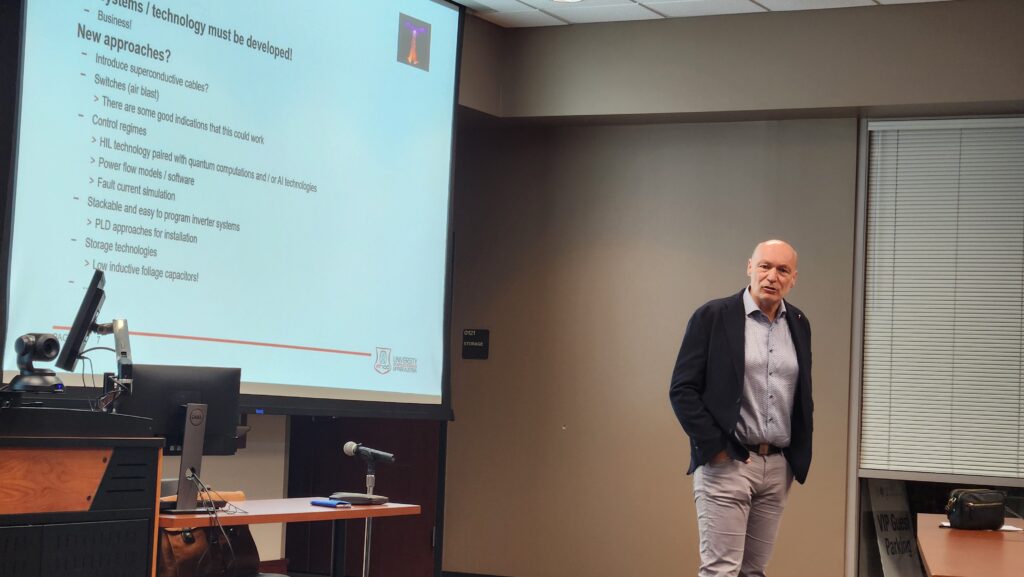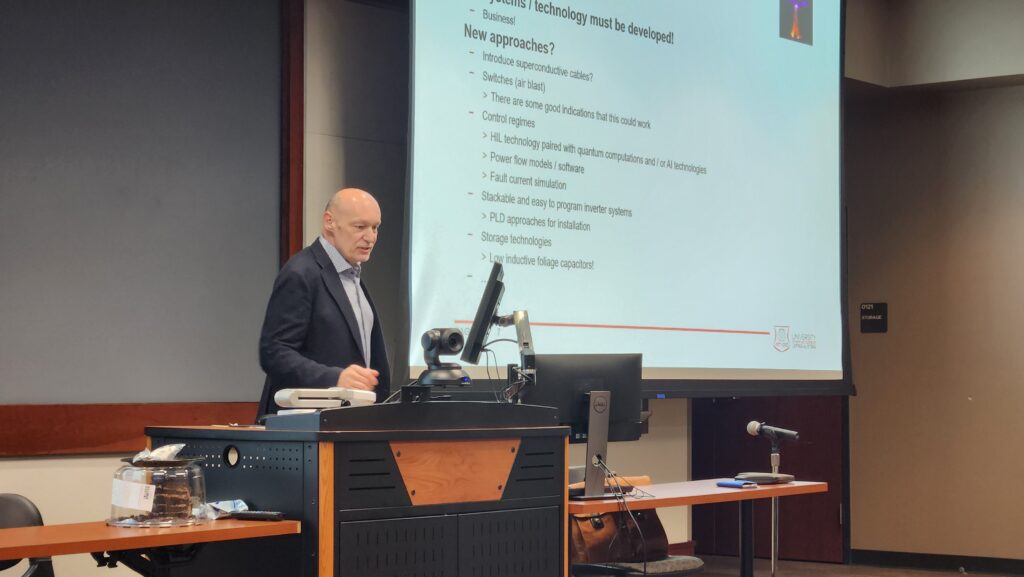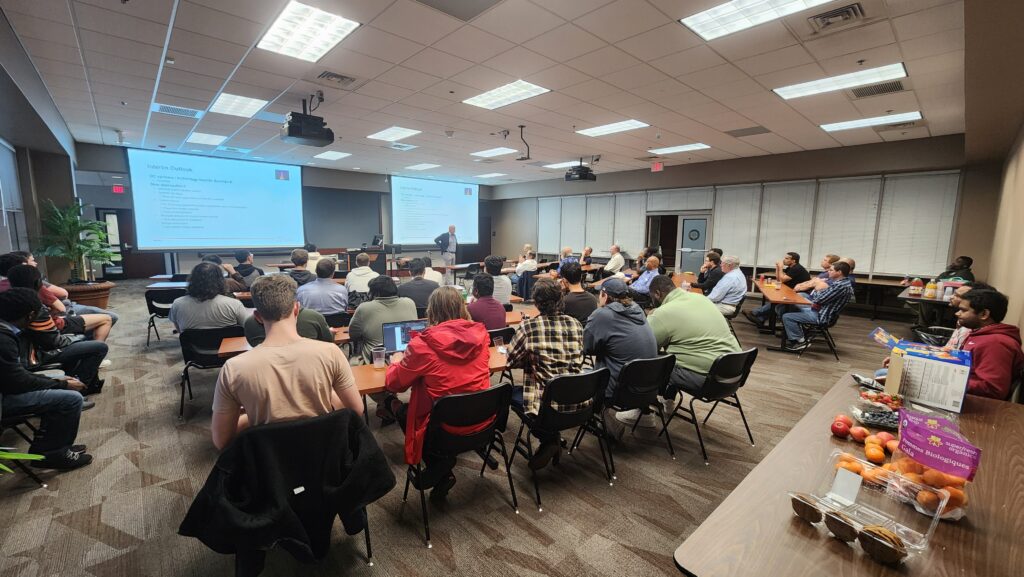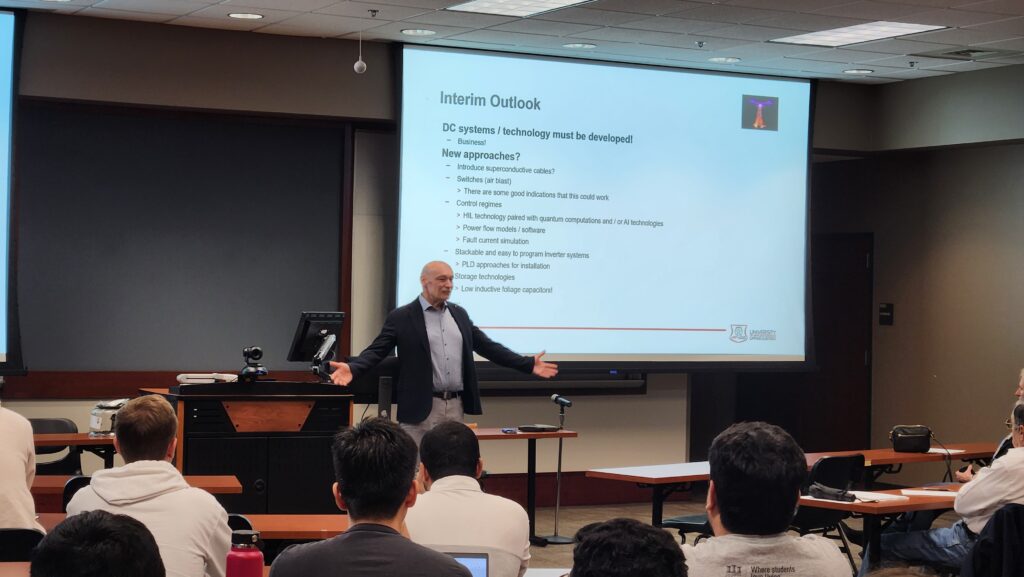IEEE Tallahassee Section, PES Student Award
Weiwei Wang – IEEE Tallahassee Section Award
Paul Mensah – IEEE PES Chapter Award
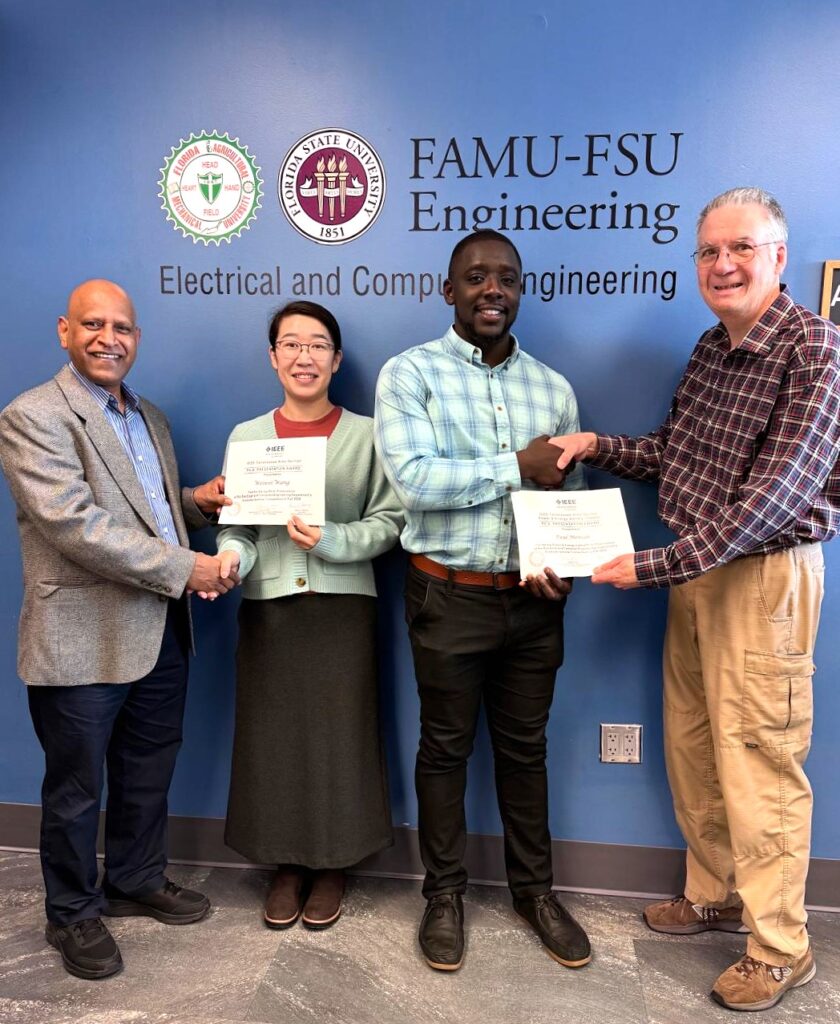
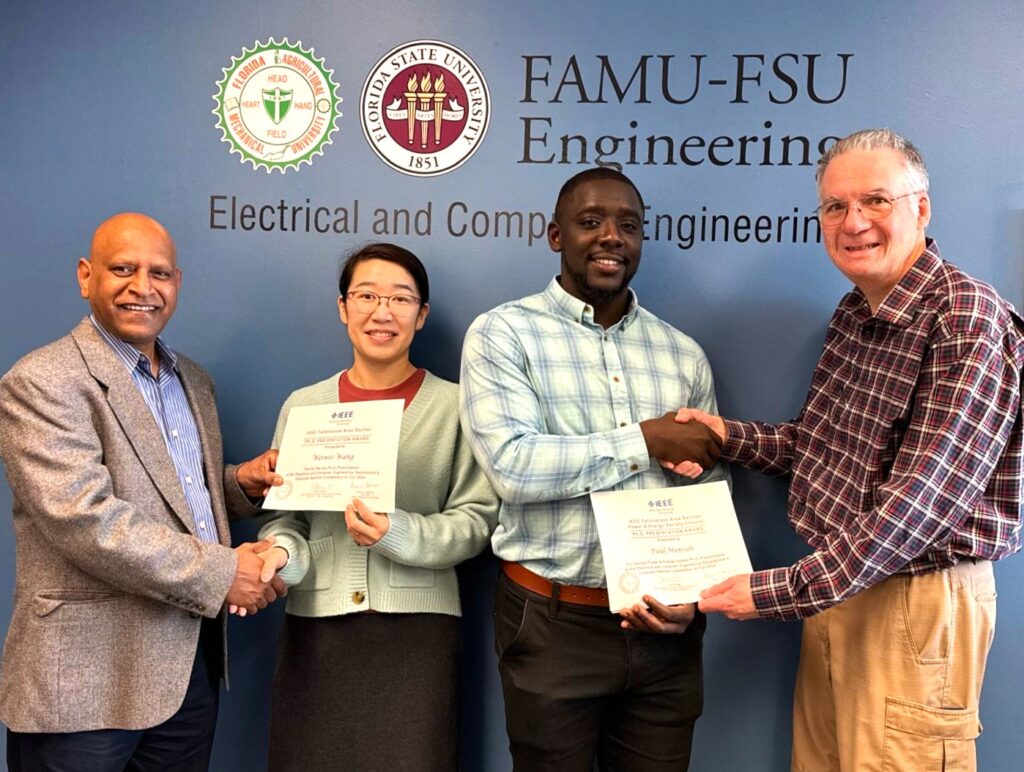
==============================================
IEEE Tallahassee Section, PES, LMAG Joint Technical Seminar
Title: Opportunities for Innovation and Diversity in Engineering
Speaker: Nathan R. Brooks, Ph.D., Executive Engineer & Senior Technical Fellow for EM and Antenna Systems at Boeing
Date: Friday, November 1, 2024, 14:00 – 15:00
Location: CAPS Seminar Room 120 (2000 Levy Avenue, Building A, Tallahassee, FL 32310)
ABSTRACT
In this seminar, I will share insights from my educational and professional journey, highlighting the significant impact of innovation and diversity across all engineering disciplines. As an expert in electromagnetics, my experiences span academia, research, and industry, where I have seen firsthand how diverse teams can drive transformative solutions to complex challenges.
BOGRAPHY
Dr. Nathan Raen Brooks has over 20 years of experience in electromagnetics (EM) and numerical optimization, including graduate and postdoctoral research at the National High Magnetic Field Laboratory (NHMFL), the Center for Advanced Power Systems (CAPS), and the European Organization for Nuclear Research (CERN). He began his industry career with Argon ST in 2007 as part of the Advanced Technology group and is currently a Senior Technical Fellow for EM and Antenna Systems at Boeing. In this role, Dr. Brooks provides technical expertise and leadership for Boeing’s Signal Intelligence (SIGINT) capabilities. He also leads and consults on the architecture and algorithm development of Electronic Warfare (EW) antenna systems. His work has been instrumental in proposing, winning, and executing numerous advanced capability program contracts for military, government, and commercial customers, including DARPA and IARPA. Additionally, he coordinates research collaborations with Historically Black Colleges and Universities (HBCUs), is an active member of several HBCU-focused organizations, and currently serves as Boeing’s Executive Sponsor for the Institute of Electrical and Electronics Engineers (IEEE). Dr. Brooks has received multiple awards at the Black Engineer of the Year Award (BEYA) conference over the years, the 2019 NSBE Golden Torch Lifetime Achievement in Industry Award, and was named the 2020 Boeing Defense Engineer of the Year. He was also FAMU’s first doctoral graduate in Electrical Engineering, supported by fellowships from Boeing, NSF, and NASA.
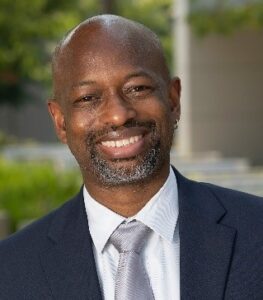
Dr. Nathan Brooks, Boeing


=================================================================
Optimal Incentivization Strategies for Charging Control of Electric Vehicles in Electricity Distribution Grid considering Dynamical Stability Constraints
Joint Technical Seminar of Tallahassee IEEE PES Chapter,
FAMU-FSU College of Engineering, and
The Center for Advanced Power Systems
Friday, Oct. 4, 2:00 p.m.
Room 120, CAPS
Significant amount of research has been done on how charging
of EVs should be priced in a cost-effective way to facilitate grid operations.
However, one question that is still unclear is: how does massive-scale
EV charging impact the dynamics of the distribution grid, and can pricing help in
smoothing of EV loads so that both small-signal and voltage stability margins of the grid
can be improved? In this talk, I will present an optimal control design to answer the above question
in light of understanding how high charging demands from EV customers may cause dynamical
instability, and how price incentivization, charging setpoints, and optimal controllers for the EV converters
can all be co-designed to minimize the risk of these instabilities.
Dr. Aranya Chakrabortty
Professor, Electrical and Computer Engineering, North Carolina State University
Prof. Aranya Chakrabortty is a professor and the associate department head for research
in the Electrical and Computer Engineering department at North Carolina State University.
His research interests are at the intersection of power systems and controls systems.
He received the NSF CAREER award in 2011, and was named a university faculty
scholar by NC State Provost office in 2019. From 2020 to 2023, Aranya
served as a program director at NSF where he managed various research
portfolios on power and energy systems.



=================================================================
Honoring the lifetime contributions of late IEEE Life Member Dr. Rajendra Arora, who passed away in January 2024.
This event is to honor the lifetime contributions of late IEEE Life Member Dr. Rajendra Arora, who passed away in January 2024.Date and Time
Date: 03 Oct 2024 (RESCHEDULED)
Time: 05:00 PM to 07:30 PM
All times are (UTC-04:00) Eastern Time (US & Canada)
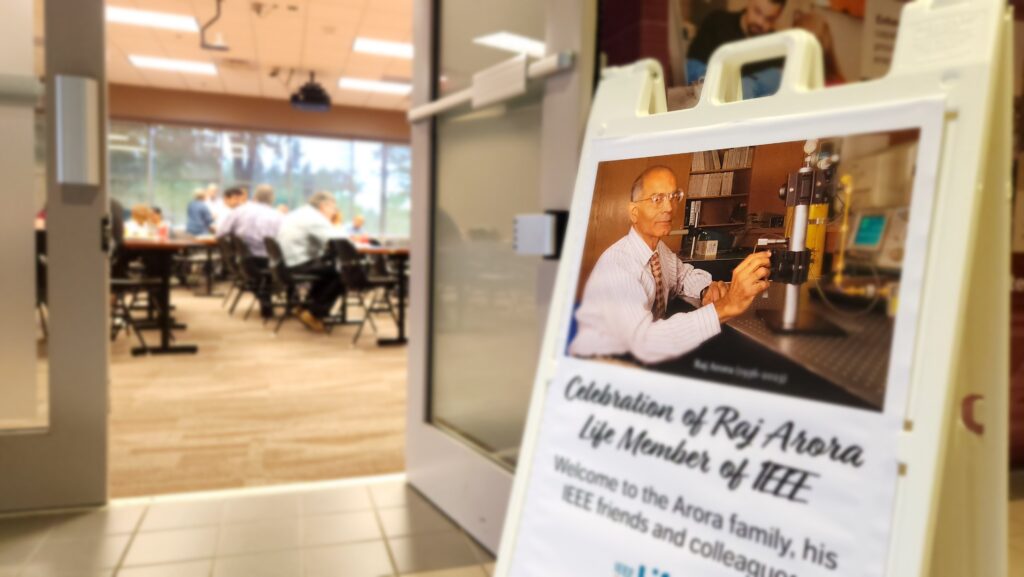
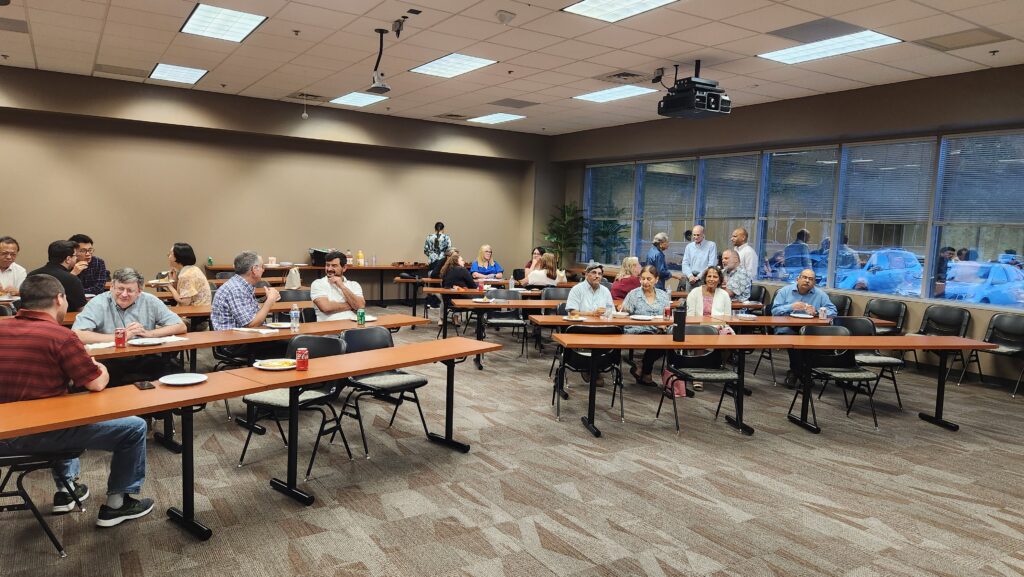

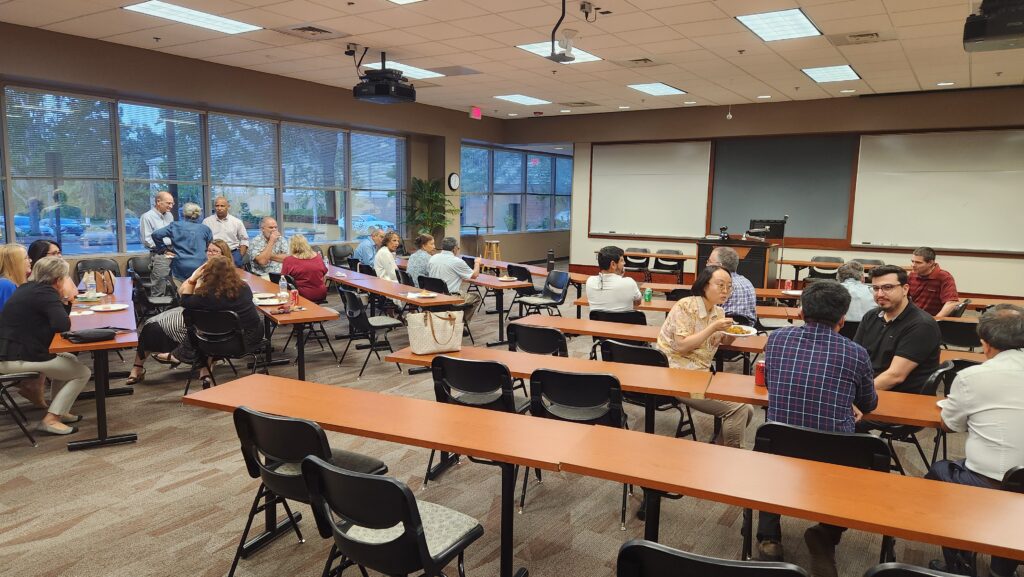
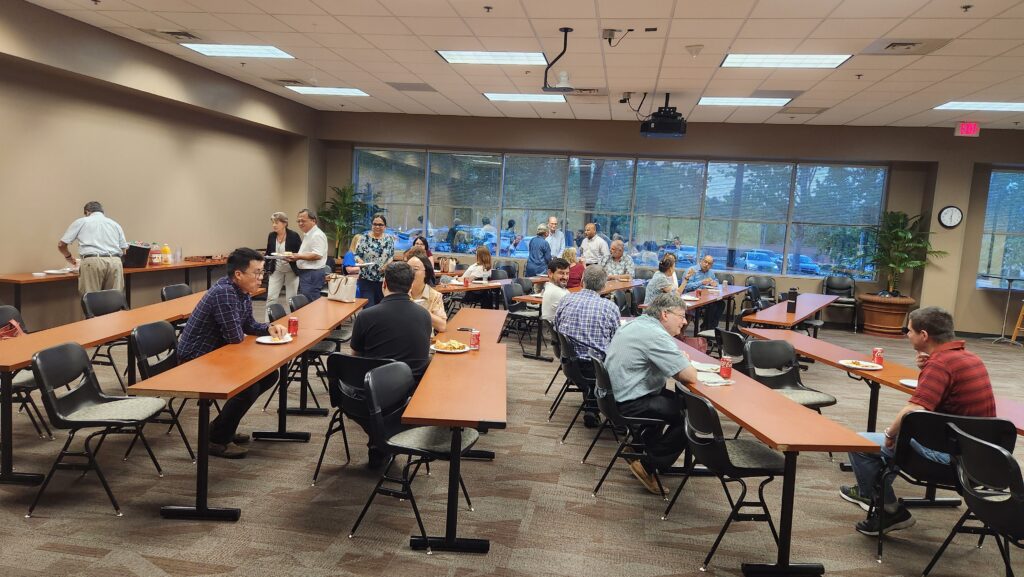
FAMU-FSU CYBER-PHYSICAL SECURITY SEMINAR SERIES
=========================================================================
Towards Zero Emissions Electric Aircraft through Superconducting DC Distribution Network
Presenter: Prof. Xiaoze Pei, University of Bath, UK
Time: 14:00 – 15:00, Thursday, August 29, 2024
Location: COAPS Room 255, 2nd floor, 2000 Levy Avenue, Building A, Tallahassee, FL 32310
Refreshments will be served.
Abstract
Electrification of aviation is crucial to achieving ambitious environmental targets for reducing carbon emissions, fuel consumption, and noise. A revolutionary concept is the hydrogen-powered electric propulsion aircraft. Utilizing liquid hydrogen as a fuel source not only provides a cryogenic environment for the electric network but also creates opportunities to leverage superconductivity for developing an on-board DC distribution network.
A reliable, high-power density, and high-efficiency cryogenic superconducting DC distribution network is essential to enable hydrogen-powered electric aircraft. This presentation will explore the system design, control, and fault protection for cryogenic and superconducting DC distribution networks. It will also discuss key enabling technologies, including the integration of superconducting fault current limiters (SFCL) with DC circuit breakers for protection, as well as advancements in novel electric machines and cryogenic power electronics.
IAAPS at the University of Bath is a world-leading centre of excellence, supporting the transport industry in its transition to net zero. The presentation will begin with a brief introduction to the state-of-the-art facilities at IAAPS, showcasing its role in advancing sustainable transport technologies.
Prof. Xiaoze Pei
Prof Xiaoze Pei is Professor of Transport Electrification and Deputy Academic Director of the IAAPS: Propulsion and Mobility at University of Bath. She holds UK EPSRC Open Fellowship and is leading the Applied Superconductivity and Cryogenic Propulsion Laboratory. Prof Pei received her PhD from University of Manchester in 2012. She joined the University of Bath in 2017, was promoted to Associate Professor in 2022, and became a Professor in 2023. Her research interests include cryogenic and superconducting powertrain and novel electrical machine design.
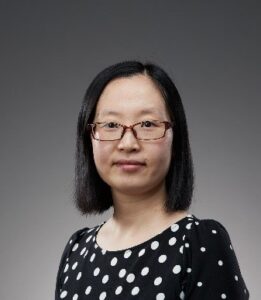
Xiaoze Pei, Ph.D.
University of Bath, UK
=================================================================
Joint Technical Seminar of Tallahassee IEEE PES Chapter,
FAMU-FSU College of Engineering, and
The Center for Advanced Power Systems
Title: RF Energy transfer and cryogenic thermal management technology developments at Sencera Energy
Presenter: Rusty Jewett, Ph.D. is the founder of Sencera Energy
Time: 15:00 – 16:00, Monday, July 8, 2024
Location: Room 120, Center for Advanced Power Systems
Refreshments will be served.
Abstract
Plasma excitation systems for semiconductor processing were initially adapted from the radio broadcasting industry, and even today the power architecture retains many vestigial features that are no longer required. A review of the physical mechanisms for transferring RF energy into a plasma gives insight into more efficient approaches for power delivery, which also expand process range and improve process repeatability. Power density in the latest generation of process tools also demands better solutions for removing heat. Some alternate thermal management approaches using cryogenic hardware will be discussed.
Dr. Rusty Jewett
Rusty Jewett, Ph.D. is the founder of Sencera Energy, a company that develops power and heat transfer hardware for the semiconductor and other industries. Prior to Sencera, he was the Managing Director of Power Systems for Lam Research, a leading manufacturer of semiconductor manufacturing equipment, the CEO of Sunpower, and the former CTO for Advanced Energy Industries, a manufacturer of precision power supplies and plasma sources. He has over 35 years of experience in commercial hardware development with patents spanning a wide range of physical disciplines including novel RF power delivery architectures, high-density plasma processing systems, and heat transfer mechanisms.

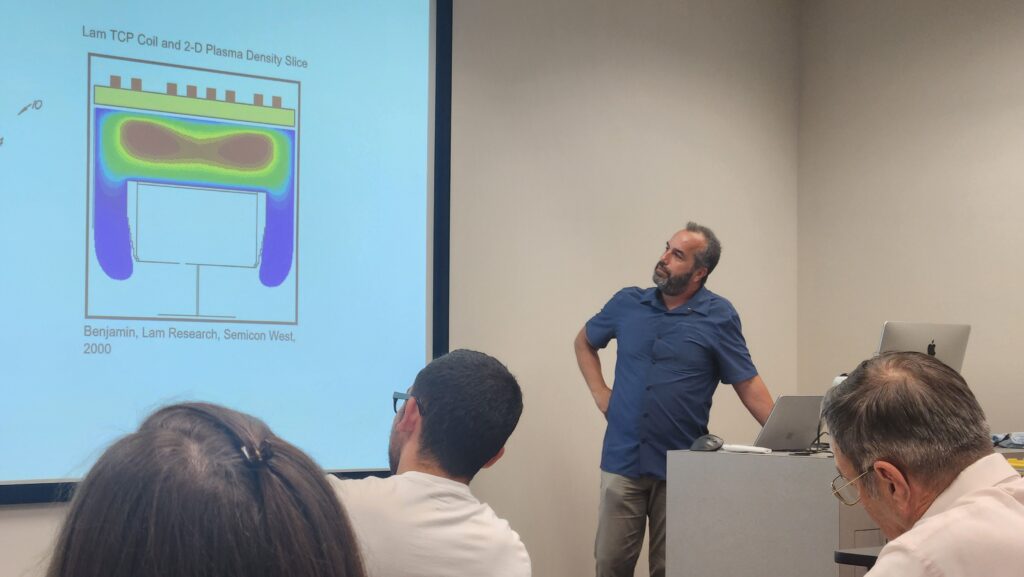



Rusty Jewett, Ph.D.
Sencera Energy
================================ ========================================
Joint Technical Seminar of Tallahassee IEEE PES Chapter, FAMU-FSU College of Engineering, and the Center for Advanced Power Systems
Title: AI-Enabled Technologies for People with Disabilities: Some Key Research and Privacy/Security Challenges
Presenter: Dr. Ishfaq Ahmad, Professor of Computer Science, The University of Texas at Arlington
Time: 2:00 pm – 3:00 pm, Monday, April 15, 2024
Location: Room 114, Materials Research Building, 2005 Levy Avenue, Tallahassee, Fl 32310
Abstract
The World Health Organization (WHO) defines disability as the interaction between individuals with a health condition (physical or mental) and personal and environmental factors. Often, People with Disabilities (PWD) have to endure physical, attitudinal, communication, and financial barriers—in fact, the most significant barrier for PWD is how society disables them. They also experience multiple violations of their rights, including acts of violence, abuse, prejudice, stigmatization, discrimination, and disrespect because of their disability, which intersects with other forms of discrimination based on age and gender, among other factors. Disability is a critical human rights issue and is at the core of society’s grand challenges, and we will personally experience it if we live long enough. The term assistive technology spans the systems and services related to delivering assistive products and services. Examples include communication tools, assistive robots, mobility enhancement, boosted educational and learning apps, smart visual and hearing aids, smart hospitals, and intelligent care environments. AI-enabled assistive technologies can alleviate reintegration and service-connected health challenges—perceptual disorders, pain disorders, musculoskeletal injuries limiting mobility, post-traumatic stress disorder (PTSD), depression, traumatic brain injury, and substance use disorders. As the wave of AI sweeps across the globe and penetrates virtually every sphere of life, we can harness it to develop highly advanced assistive technologies. Empowering PWD to improve their lives is the best gift an engineer or scientist can give to people. With the burgeoning global population and an upsurge in non-communicable diseases, more than two billion people will need at least one assistive product by 2030. A case in point is multiple assistive robots. Their coordination and orchestration include several key research tasks that require creative techniques. The goal is to provide assistance to the health care providers by automating some of the chores. We also describe some of our research projects on assistive technologies, highlight their key aspect, and identify some critical security and privacy issues.
Biography
Ishfaq Ahmad (IEEE Fellow) is a computer science and engineering professor and director of the Center for Advanced Computing Systems at the University of Texas at Arlington (UTA), which he joined in 2002. He earned his Ph.D. in Computer Science and M.S. in Computer Engineering from Syracuse University, New York, U.S.A. He has authored nearly 300 publications, including books and peer-reviewed research papers on high-performance computing, optimization algorithms, digital video compression, AI-enabled assistive technologies, and sustainable computing. His current focus is solving large-scale AI problems on massively parallel supercomputer systems. Dr. Ahmad has received numerous international research awards and about $15 million in research funding. Google Scholar shows his research papers as highly cited in several computer science and engineering sub-branches. He has chaired over 20 international conferences and delivered more than 150 talks, including several keynote speeches. While being a professor, he has held additional positions: a senior visiting scientist at the Chinese Academy of Sciences in Beijing; a visiting lecturer at NASA’s Johnson Space Center, Houston, Texas; a frequent senior visiting scientist at the U.S. Air Force Research Laboratory in Rome, New York, a certified ABET evaluator, and an honorary professor at several universities worldwide. Additionally, he is the founding Editor-in-Chief of Sustainable Computing: Informatics and Systems and the founding and current Editor-in-Chief of Springer’s Discover Internet-of- Things. He has also served as editor of IEEE Transactions on Parallel and Distributed Systems, IEEE Distributed Systems Online, Journal of Parallel and Distributed Computing, IEEE Transactions on Circuits and Systems for Video Technology, and IEEE Transactions on Multimedia. Outside his main domain, he has recently authored a comprehensive biography of the Prophet of Islam, entitled, “The Perfect Human, Muhammad (Peace Be Upon Him), How the Last Prophet of God Changed the World.”
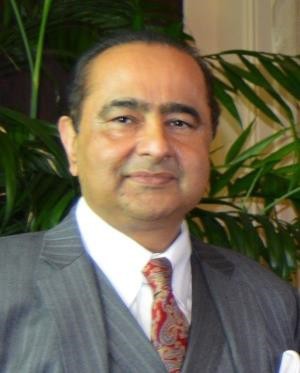
===========================================================
Joint Technical Seminar of Tallahassee IEEE PES Chapter, FAMU-FSU College of Engineering, and the Center for Advanced Power Systems
Title: DC surface current and partial discharge experiments at highly stressed and polluted insulators
Presenter: Dr. Peter Zeller, Upper Austria University of Applied Sciences, Wels, Austria
Time: 2:00 pm – 3:00 pm, Wednesday, March 27, 2024
Location: Room 120, Center for Advanced Power Systems
Abstract
DC technology is an energy-efficient and environmentally friendly approach to integrating large energy storage systems and renewable energy resources (such as wind and PV) into the grid. An important design parameter for DC components is the required creepage distance along any insulator, insulating, and polluted surface.
Our investigation into the performance of several insulator (bulk) materials (glass, PVC, and epoxy resin) polluted with graphite, sand, and saltwater was conducted with a robust and reliable test setup. This setup, consisting of an electrode geometry that applies an almost uniform electric field along the test sample surface, allowed us to measure the surface current and the partial discharge (PD) activity. We ramped the voltage level up to 60 kV in 5 kV to 10 kV steps, achieving a maximum electric field strength of 10 kV/cm, ensuring accurate and comprehensive data collection.
The surface current was measured using a custom low-cost current sensor connected via a glass fiber communication to a personal computer. The results presented in the talk underscore the crucial role of pollution in influencing the surface current level, particularly when the pollution is in motion on the insulator’s surface. Conductive pollution profoundly impacts the effective creepage distance. The local field distribution (field excess) in the vicinity of pollution triggers PD, as does the movement of mobile pollution particles. The mobility of pollution is a complex interplay between the type of pollution and the bulk material, further emphasizing the importance of our findings.
Our future work holds promise for further advancements. We plan to delve into specific environmental conditions, such as humidity and temperature, which could provide valuable insights. Additionally, we are excited to extend our tests to a combined stress setup, incorporating a DC source and a lightning pulse generator. This concept, introduced in the seminar, opens new avenues for exploration and potential breakthroughs.
Biography
Dr. Peter Zeller received his Ph.D. from the Technical University of Vienna (Institute for Switching Technology and High Voltage Engineering), where he investigated the influence of gas flow on magnet blast arc motion in miniature circuit breaker arc chutes. He started his industry career at the surge arrester R&D department at ABB / Switzerland. In 2000, he joined the University of Applied Sciences Upper Austria (Wels) and, in 2023, the “Energy Institute” at the Johannes Kepler University in Linz / Austria. He developed several international study degree programs focusing on energy engineering. In 2015, he invested 3,000,000 euros in a high-voltage and high-current test facility. Dr. Peter Zeller’s current research is at the forefront of shaping the future of electric energy distribution and storage systems. His focus on compact high-power fuses for electric cars, electric insulation systems for DC applications, and the short circuit and overvoltage protection of DC power supply is paving the way for more efficient and sustainable energy solutions. As the head of the technical department at the “Energy Institute,” he leads the investigation of approaches for future renewable and low-carbon technologies energy supply, instilling hope for a greener future. Peter Zeller is a co-founder of the Austrians DC initiative and a member of several associations (IEEE working group TC 81 for lightning protection, Current Zero Club for low voltage).

